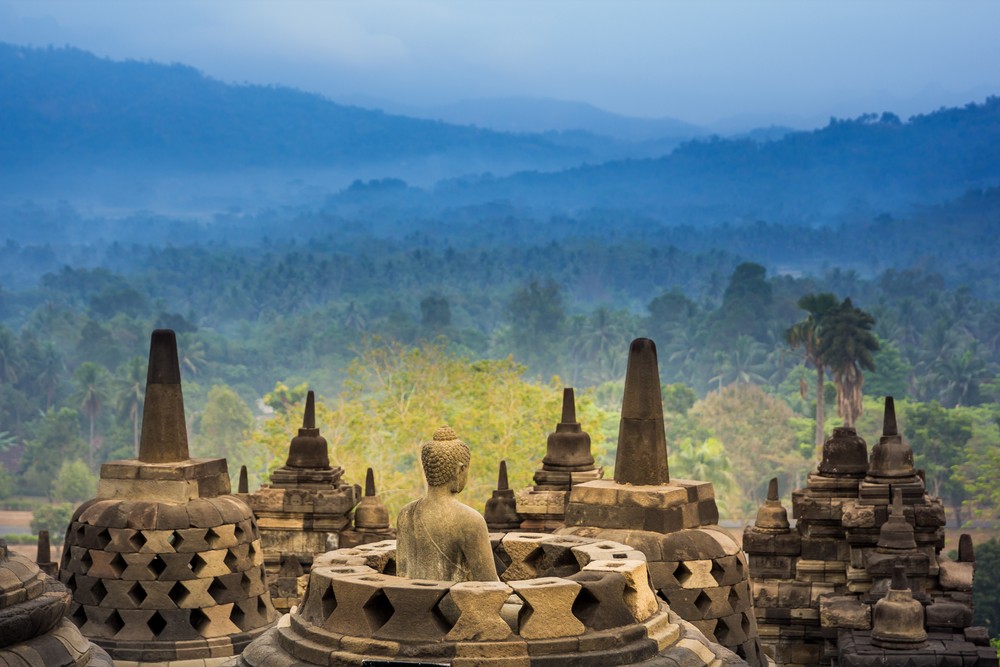Regional meeting seeks to promote smoke-free tourism
The sixth regional meeting of Smoke-Free Cities in the Asia-Pacific region discussed steps to promote and strengthen the smoke-free campaign in different types of tourist attractions, including heritage sites.
Change text size
Gift Premium Articles
to Anyone
 Borobudur temple in Magelang, Central Java, is among the heritage sites that received technical assistance from the Southeast Asia Tobacco Control Alliance (SEATCA) to launch and maintain a smoke-free campaign. (Shutterstock/File)
Borobudur temple in Magelang, Central Java, is among the heritage sites that received technical assistance from the Southeast Asia Tobacco Control Alliance (SEATCA) to launch and maintain a smoke-free campaign. (Shutterstock/File)
The sixth regional meeting of Smoke-Free Cities in the Asia-Pacific region was held in Hoi An, Vietnam, on Nov. 20 to 21.
Organized by the Southeast Asia Tobacco Control Alliance (SEATCA) and the Vietnam Tobacco Control Fund (VNTCF) of Vietnam’s Health Ministry, the meeting discussed steps to promote and strengthen the smoke-free campaign at different types of tourist attractions, including heritage sites.
SEATCA Smoke-free program manager/Smoke-free Cities Asia-Pacific Network (SCAN) secretary-general Domilyn Villarreiz said in a statement,” Tourism is an important economic driver of cities. Successful tourism relies not only on individual attractions but on a welcoming and healthy environment. It is important to strengthen the smoke-free campaign of tourist spots of cities to maintain fresh air and create a healthy environment for citizens and tourists alike.”
During the two-day meeting, SEATCA also recognized the smoke-free efforts of the different heritage sites. Borobudur and Prambanan temple compounds in Central Java were among the heritage sites that received technical assistance from the organization to launch and maintain smoke-free campaign.
Read also: Bone-bone, the smoke-free village
In addition to giving a healthy environment for citizens and tourists, the smoke-free campaign was said to also help protect the heritage sites from fires and smoke damage caused by smoking and the indiscriminate discarding of cigarette butts.
“A non-smoking environment will also aid in preserving old monuments and buildings and prevent non-biodegradable cigarette butts from littering the environment,” said Villarreiz.
To apply smoke-free tourism, the authorities were encouraged to develop and enforce a strong and comprehensive policy related to smoking in heritage sites.
“In the region, most countries have comprehensive laws in place to create wider and more effective health zones featuring smoke-free workplaces, public transportation, restaurants, bars and other public places. We hope this meeting will make more frequently visited tourist attractions in cities smoke-free because smoke-free tourism is not only good for the economy, but more importantly good for health and the environment,” said Villarreiz. (jes/kes)






